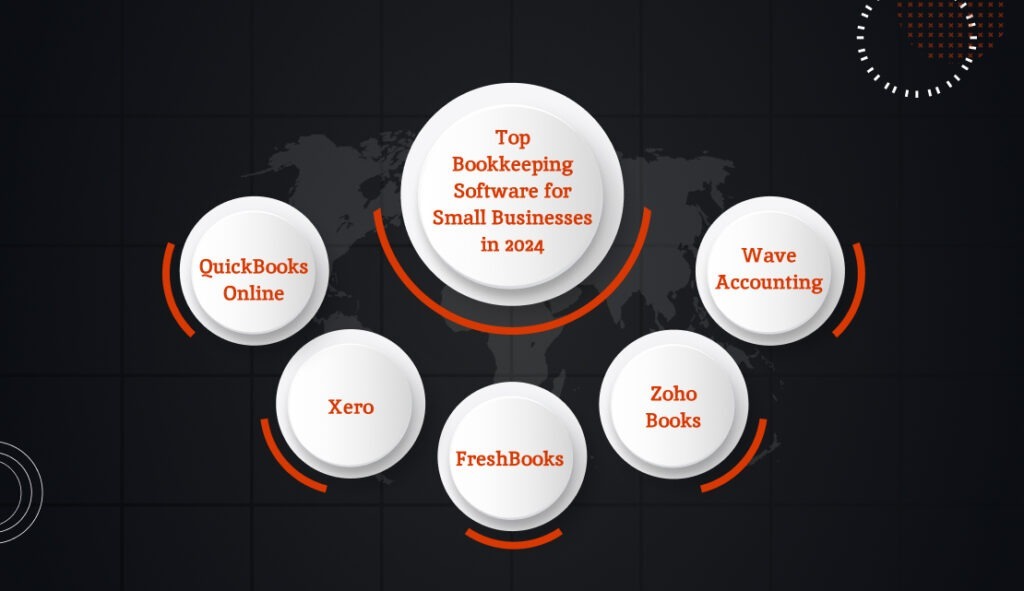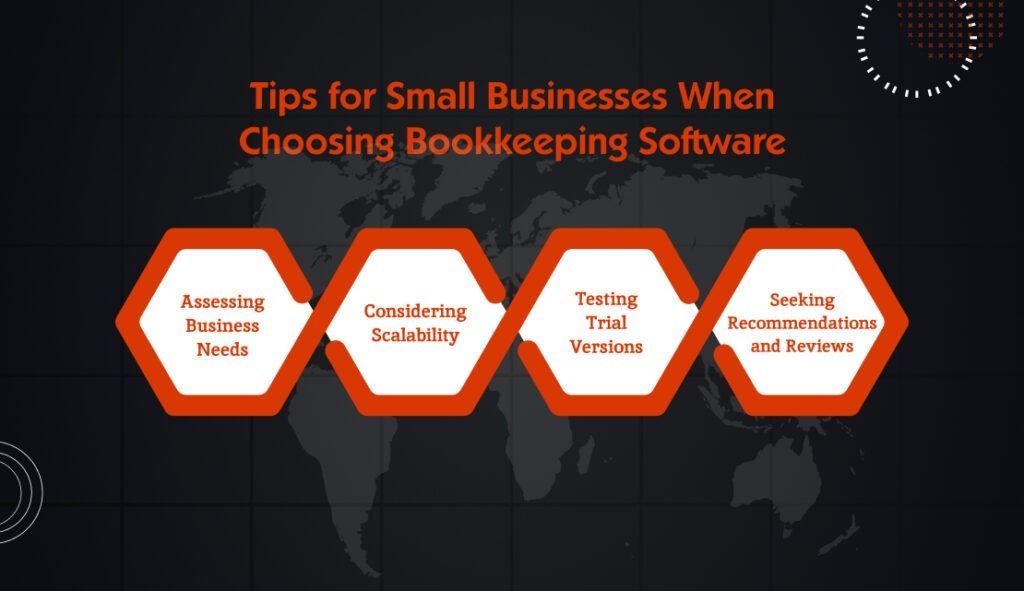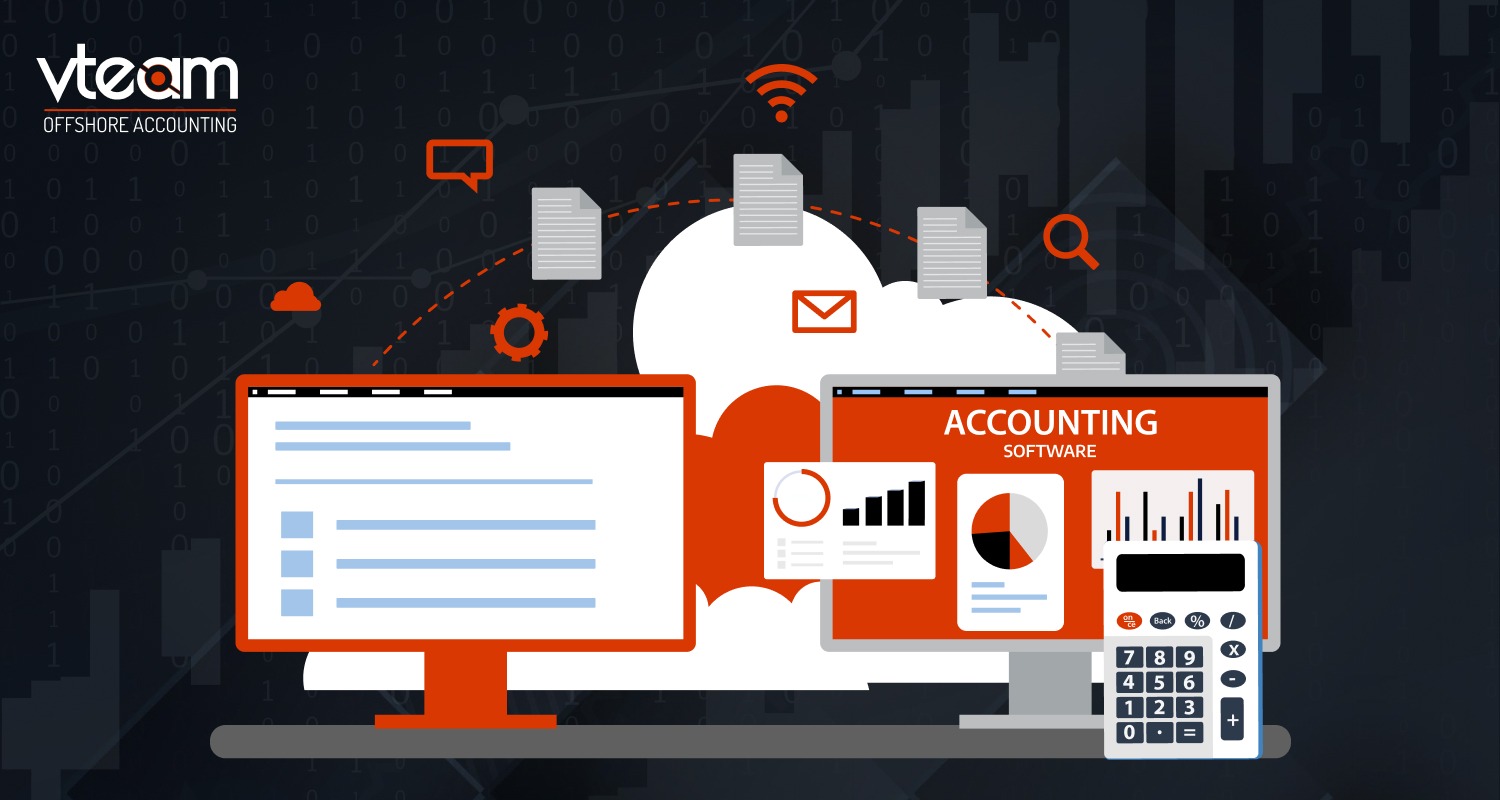In the dynamic world of modern business, the role of effective bookkeeping cannot be overstated, especially for small businesses aiming for sustainable growth. Bookkeeping software has evolved significantly over the years, becoming an indispensable tool for managing financial records, streamlining operations, and ensuring compliance. As we step into 2024, it’s crucial for small businesses to stay abreast of the latest advancements in accounting technology. In this blog post, we’ll explore the best bookkeeping software options available and delve into key considerations for making an informed choice.
Criteria for Selecting the Best Bookkeeping Software
User-friendly Interface:
The accessibility and ease of use of bookkeeping software are paramount for small businesses. QuickBooks Online, known for its intuitive interface, stands out in this regard, making financial management accessible even for those without extensive accounting backgrounds.
Features and Functionalities:
A comprehensive set of features is essential for efficient bookkeeping. Xero, with its robust capabilities, excels in this area. From invoicing and expense tracking to payroll and bank reconciliation, Xero offers a holistic solution for small businesses.
Integration Capabilities:
In the interconnected digital era, integration capabilities are crucial. Zoho Books is renowned for its seamless integration with various business applications, providing a cohesive ecosystem for small businesses to manage their operations effortlessly.
Cost-effectiveness:
Small businesses often operate on tight budgets, making cost-effectiveness a critical consideration. FreshBooks, with its transparent pricing structure and value-packed features, emerges as an attractive choice for those seeking affordability without compromising on functionality.
Customer Support and Reviews:
The importance of reliable customer support cannot be overstated. Wave Accounting, a free accounting software option for small businesses, has garnered positive reviews for its user-friendly design and responsive customer support.
Top Bookkeeping Software for Small Businesses in 2024

QuickBooks Online:
QuickBooks has long been a staple in the accounting software world. With its online version, QuickBooks Online, the software caters specifically to the needs of small businesses. Its features include invoicing, expense tracking, and payroll management. The various pricing plans ensure that businesses can choose a package that aligns with their requirements and budget.
Xero:
Xero has established itself as a formidable competitor in the accounting software arena. Known for its user-friendly interface and robust features, Xero is particularly suitable for small businesses looking for comprehensive solutions. The software supports multiple users and provides real-time collaboration, making it an excellent choice for accounting firms handling diverse clients.
FreshBooks:
FreshBooks is designed with simplicity in mind, making it an ideal choice for small businesses and freelancers. It offers features like invoicing, expense tracking, and time tracking. What sets FreshBooks apart is its focus on user experience and client management, making it an excellent tool for service-based businesses, including accounting firms.
Zoho Books:
Zoho Books stands out for its integration capabilities, allowing seamless connectivity with other Zoho applications as well as third-party tools. This cloud-based solution offers features such as expense tracking, inventory management, and project billing. Zoho Books is suitable for small businesses seeking a scalable and integrated accounting solution.
Wave Accounting:
For small businesses on a tight budget, Wave Accounting provides a free accounting software solution. While it may not have the extensive features of paid options, Wave is a practical choice for startups and sole proprietors. It includes invoicing, expense tracking, and basic reporting, catering to the essential needs of small businesses.
Also Read : How Financial Analysis Empowers Strategic Business Investments
Emerging Trends in Bookkeeping Software
Artificial Intelligence and Machine Learning:
The integration of artificial intelligence and machine learning is revolutionizing bookkeeping software. Automation of routine tasks, data analysis, and predictive modeling are becoming commonplace, reducing the manual workload for small businesses. QuickBooks accounting software, for example, leverages AI for categorizing transactions and improving accuracy.
Cloud-based Solutions:
The trend toward cloud-based accounting solutions continues to gain momentum. Xero, being a cloud-based platform, allows businesses to access their financial data anytime, anywhere. This not only enhances flexibility but also ensures data security and backup.
Mobile Accessibility:
The increasing reliance on mobile devices has led to a surge in demand for mobile-friendly accounting solutions. FreshBooks, with its mobile app, enables users to manage their finances on the go. This trend aligns with the evolving work culture, where professionals often need access to financial data outside traditional office settings.
Financial Software Consulting and the Role of Xero Migration Specialists
As businesses evolve, they may find the need to migrate from one accounting software to another. The process of accounting software migration requires careful planning and execution to ensure a smooth transition. Financial software consulting firms play a pivotal role in guiding businesses through this process, offering expertise in selecting the right software and seamlessly migrating data.
Xero migration specialists are professionals with in-depth knowledge of the Xero platform. They assist businesses in transitioning their financial data to Xero from other accounting software. This specialization ensures that the migration is executed efficiently, minimizing disruptions to the business’s day-to-day operations.
Tips for Small Businesses When Choosing Bookkeeping Software

Assessing Business Needs:
Before selecting bookkeeping software, businesses should assess their unique requirements. QuickBooks Online and Xero, while both excellent choices, cater to different business sizes and industries. Understanding specific needs helps in making an informed decision.
Considering Scalability:
As businesses grow, their accounting needs evolve. Choosing a scalable solution like Zoho Books ensures that the software can adapt to the changing requirements of a growing business, preventing the need for frequent migrations.
Testing Trial Versions:
Most bookkeeping software offers free trials. Small businesses should take advantage of these trial versions to explore the features and functionalities firsthand. This hands-on experience helps in evaluating whether the software aligns with the business’s workflow.
Seeking Recommendations and Reviews:
Consulting with peers and seeking reviews from other businesses in similar industries can provide valuable insights. Wave Accounting, as a free accounting software, often gains popularity through positive word-of-mouth recommendations from startups and small businesses.
Conclusion
The best bookkeeping software for small businesses in 2024 depends on various factors, including the specific needs of the business, budget constraints, and future scalability requirements. QuickBooks Online, Xero, FreshBooks, Zoho Books, and Wave Accounting are among the top choices, each offering unique features to cater to different business scenarios.
The emerging trends in bookkeeping software, such as artificial intelligence, cloud-based solutions, and mobile accessibility, highlight the industry’s continuous evolution. Small businesses must stay attuned to these trends to remain competitive in an ever-changing business world.
Financial software consulting firms, particularly those specializing in Xero migration, play a vital role in assisting businesses with seamless transitions between accounting platforms. Their expertise ensures that businesses can leverage the full potential of advanced accounting solutions without the headaches often associated with migration.
As small businesses navigate the complexities of financial management, the right bookkeeping software becomes a strategic asset. By following the tips provided and staying informed about the latest trends, small businesses can make informed decisions that contribute to their long-term success. Whether you’re an accounting firm or a budding entrepreneur, choosing the right bookkeeping and accounting firm software is a crucial step towards achieving financial efficiency and sustainability in 2024 and beyond.
Upgrade seamlessly with vteam’s expert software migration service. Enhance your business with precision and efficiency. Contact us today!

